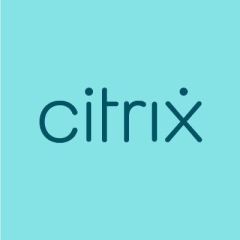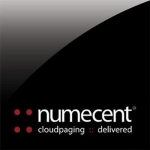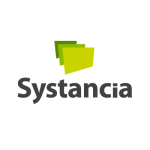What is our primary use case?
We use Citrix Workspace to login into our system.
We have several users and there are standards in the installation process because of the security. They have found that various systems with standard installations, restricting users to go ahead and install on their own.
Everything is managed through the infrastructure. ServiceNow is used for the CCM.
Everything is automated machine creations and installations. They take care of the machines with regular updates on weekends.
Everything is automated here, and there is no manual intervention for setting up any system if a new user is hired.
What is most valuable?
The feature that I like is that it is fast. For example, if I am new to the company, setting up systems can take up a lot of time, but, having standard automation in place allows this user to have the same set of software installed on his or her machine.
The only area that takes some time is that it requires us to get the approval. Once the approval is given, the system with everything is installed as a prerequisite.
Because it's a prerequisite, it's a standard installation in all the systems, there are no discrepancies because everything is standard, it's automated. If I am using a particular version, it will be the same version in my colleague's system.
It's very easy.
What needs improvement?
Performance is an area that can be improved. The meetings that use Skype in Workspace will lag when they run long or we screen share. At times, it is slow when there are multiple users on the server.
When it lags, we restart it to get it resolved. If multiple users are using a single server it will lag.
The lag when using Skype or Screen Sharing with multiple users needs to improve, as it makes it difficult for us to continue when we have to restart the system.
For how long have I used the solution?
I have been using Citrix Workspace for almost one year.
What do I think about the stability of the solution?
The solution is stable, however, there are version discrepancies. For example, a new version of Citrix has become available and I am using the old version of Citrix the new version is not compatible with the Media version, which creates problems when using Skype or any video meeting.
Lag is something that we observe frequently, but it can be resolved because we have a guideline page that shows us the versions that should be compatible with our systems or Windows Operating System, and the Media Version, which is the Citrix HDX Realtime Media Version, should also be compatible with the Citrix Workstation that we are using. If both are good your system will work well.
What do I think about the scalability of the solution?
It's a scalable solution and everyone in the organization uses it. We have more than 15,000 users.
We plan to continue to use Citrix Workspace.
How are customer service and technical support?
I do not have experience with technical support. I have a PoC team that deals with them. They are quick to resolve issues.
We just need to create a ticket and ask for support.
Ther support is good and they are quick to respond and resolve issues.
Which solution did I use previously and why did I switch?
Previously, we used A3 Machine, which was replaced by Citrix Workspace.
How was the initial setup?
It is easy to install. There is a link provided on our homepage for login.
We just need to install it and restart the system.
It is very fast. It took half an hour or so.
What other advice do I have?
Azure Desktop has been released and we will be using this along with Citrix Workspace. When we want to use something, we need to first have Citrix Workspace.
I have Citrix Workspace and on top of that, I can use Microsoft Azure Desktop, which may allow me to program in that machine. Citrix Workspace is the base and it works fine with most of our products.
Definitely, I would recommend Citrix Workspace to others who are interested in using it. It's very handy, portable, fast, and easy to install. Also, it is the standard amongst all users.
I would encourage everybody to use Citrix Workspace.
We are quite satisfied. I would rate this solution a nine out of ten.
Which deployment model are you using for this solution?
Public Cloud
Disclosure: I am a real user, and this review is based on my own experience and opinions.












